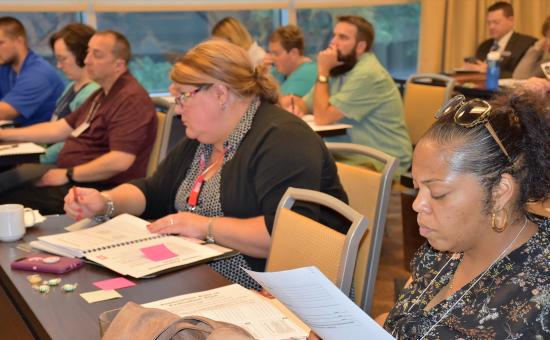What you need to know about collective bargaining
09/12/2017
On Sept. 15, the window for collective bargaining of public school educator contracts opens. For those new to ISTA or the profession, ISTA UniServ Director Barbara Deardorff shares answers to the top bargaining FAQ’s. Deardoff has been a UniServ director for more than five years and previously taught high school chemistry and physics.
Q: What is collective bargaining?
A: Collective bargaining is when representatives of employees - also known as the local association, organization, federation or union - and the employer - the school board - negotiate the salary and other benefits of employees. The results of these negotiations are the Collective Bargaining Agreement (CBA), sometimes referred to as the Master Contract.
Q: What can be bargained?
A: Since 2011, teachers’ associations have been able to bargain salary, wages and wage-related benefits such as insurance and leave time. Support staff associations may also bargain working conditions.
Q: When does bargaining occur?
A: Teachers associations have a formal bargaining timeline of Sept. 15 to Nov. 14 each year and cannot have a contract that goes past Indiana’s state budget biennium, which is June 30 of odd numbered years. Thus, contracts entered into this school year may not end after June 30, 2019. Teachers associations are currently bargaining one or two year contracts, and those that chose a one year contact this year will only be allowed to bargain a one year contract next year up to June 30, 2019. Meanwhile support staff bargaining timelines and lengths of contracts are decided locally.
Q: What happens if the teachers’ association does not finish bargaining during the timeline?
A: If the teachers’ association does not reach a tentative agreement and ratify it by Nov. 14, the Indiana Education Employment Relations Board (IEERB) will declare an impasse. IEERB will then assign a mediator to work with the teachers’ association and school board to reach a tentative agreement. The parties will have up to three meetings with the mediator during a thirty-day period. If they are still unable to reach an agreement, each side will have the opportunity to present their proposal to a fact-finder, who will then choose which proposal shall become the CBA.
Q: How can I get involved?
A: If you’d like to get involved, contact your local association’s bargaining chair. Bargaining chairs are always looking for people to serve on the bargaining team, perform financial calculations, supply meals and treats during long bargaining sessions and support the bargaining team in any number of creative ways.
